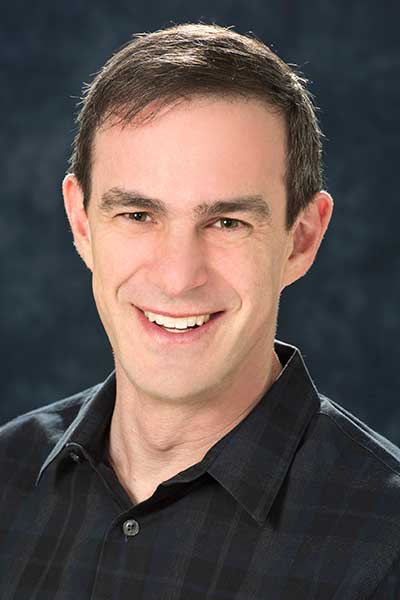Emerging developments in artificial intelligence (AI) have the potential to dramatically affect the role and accuracy of predictions in several aspects of modern life. To open ACR Convergence 2023, bestselling author and data scientist Avi Goldfarb, PhD, will explore the implications of advances in prediction technology on medicine.

“Medical diagnosis is a prediction problem,” he said. “You take in data about somebody’s symptoms and you fill in the missing information of the cause of those symptoms. That’s prediction.”
Dr. Goldfarb will present “Prediction Machines: How AI Could Transform Healthcare” on Saturday, Nov. 11, during the Opening Session & Awards, from 4–6 p.m. PT in Hall A–B of the San Diego Convention Center. It will be livestreamed and available on demand within 24 hours for registered ACR Convergence 2023 participants.
Dr. Goldfarb is the co-author of the bestselling books Power and Prediction: The Disruptive Economics of Artificial Intelligence and Prediction Machines: The Simple Economics of Artificial Intelligence. He also is the Rotman Chair in Artificial Intelligence and Healthcare at the Rotman School of Management, University of Toronto, Canada. Dr. Goldfarb serves as Chief Data Scientist at the nonprofit Creative Destruction Lab, moderating tracks related to healthcare, AI, and quantum technology. His is a member of the scientific leadership team for Acceleration Consortium, which focuses on merging AI, robotics, and advanced computing.
As machine prediction has become less expensive, new applications for the technology have proliferated, but the adoption of AI prediction in healthcare has been slower than in other industries.
“We have this extraordinary hype and excitement, yet we see very little action on the ground,” Dr. Goldfarb said. “So, we have to think through why there is so little action and what that transformation looks like.”
It took 40 years for another transformative technology — electricity — to change the way we live. Four decades passed between Thomas Edison receiving a patent for the electric lightbulb to their use being commonplace in homes and factories, Dr. Goldfarb noted. During the adoption phase, people continued to do what they had always done, just a little bit better than before.
“It was only once you realize that electricity allows you to do things differently — to build a different kind of factory, to structure your house differently, to have home appliances and all these things — that you have a massive adoption in businesses and homes,” Dr. Goldfarb explained.
Humans are still coming to that realization with AI.
“We can see the potential of the technology, but we haven’t experienced it yet,” he said. “The challenge is to think through what that system-level change looks like rather than a point solution of doing what you always did, but a little bit better. It’s thinking out some current process, dropping the machine at the exact same point, and reorganizing the system to enable transformation.”
However, harnessing the potential of AI-driven prediction is not synonymous with abdicating decision-making to machines.
“Prediction isn’t everything involved in a decision,” Dr. Goldfarb said. “There are all of these other parts of a decision that still require a human touch. What the prediction machine does is it can change which humans make decisions, and it can change the time and place of decisions.”
Judgement is a vital component to coming to a decision.
“There is a core human responsibility in taking responsibility for the decisions of the humans that the machines support because all the machine is doing is the friction part,” Dr. Goldfarb said.
The Opening Session & Awards also will include remarks from ACR President Douglas White, MD, PhD, and ARP President Kori Dewing, DNP, ARNP; an update on the Rheumatology Research Foundation (RRF) from RRF President V. Michael Holers, MD; and recognition of this year’s award recipients.
WATCH ACR CONVERGENCE 2023 SESSIONS ON DEMAND
If you weren’t able to attend a session in person during ACR Convergence 2023, you haven’t missed out. All registered meeting participants receive on-demand access to scientific sessions through October 31, 2024.


